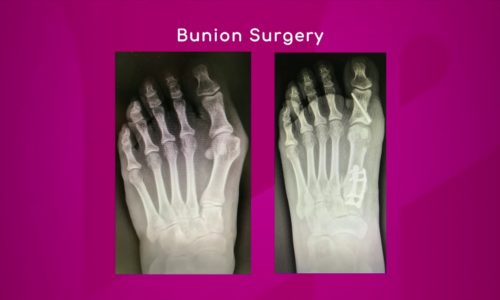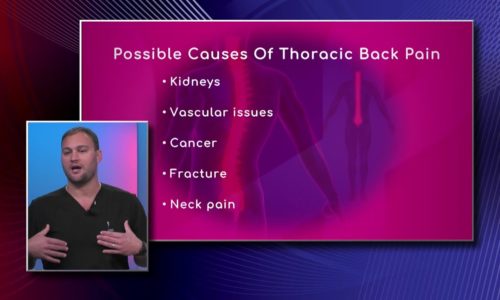Spinal Disorders: Pain Management |
Claudia Hogdson, Advanced Registered Nurse Practitioner with Miami Orthopedics and Sports Medicine Institute, explains to manage the pain sometimes they give them narcotics. But, they try to stay away because that is not focusing on the main problem.
“If we’re talking about the lumbar spine, we’ll also give them a brace just to be able to have them offload the pressure from their spine and be able to have some rest. But we’re constantly targeting them to have a healthy lifestyle, healthy back, healthy muscles doing the job that they need to do.”
Transcript
When a patient comes into the office what is the first step in helping them manage the pain? > One of the first steps we go to the root of the problem which is they’re having an inflammatory response they’re having acute pain we try to stabilize them sometimes we might give them narcotics but we try to stay away because that’s not really focusing on the main problem, it’s the inflammatory response if they’re having… if we’re talking about the lumbar spine we’ll also give them a brace just to be able to have them offload the pressure from their spine and be able to have some rest, but really we’re we’re constantly targeting them for them to have a healthy lifestyle, healthy back, healthy muscles doing the job, that they need to do. Sometimes patients forget that if their back is you know if they’re have if their back is hurting if they’re having back pain — right — just because they work out they’re not really targeting the area which is the part of spinal muscles. Sometimes underlying them I have a herniated disc once they get out of that crisis they will get better it’s not that they’re not going to get better always try to alleviate patients concern and anxiety telling them you will see the light at the end of the tunnel. If it’s something that we see that the patient’s not responding, they’re having issues, neurological issues, bowel and bladder issues, where they’re losing control of their bowel and bladder. Then that’s something where we know it’s more of a surgical emergent consultation but usually that’s not the case patients you know will get better seventy percent of patients will get better sometimes just with the treatment that we get.








